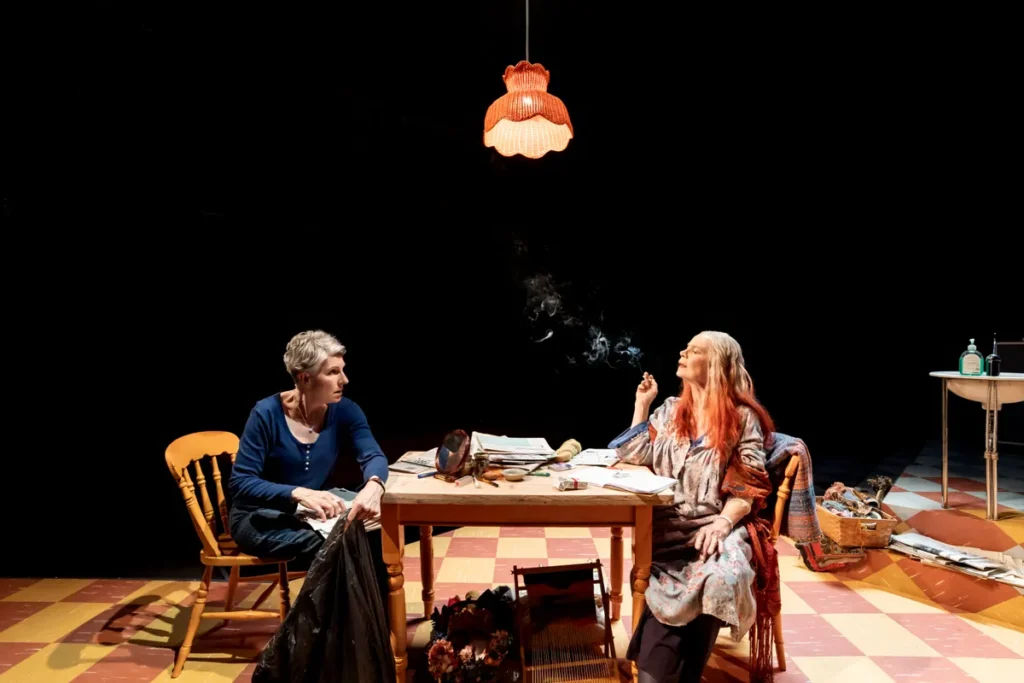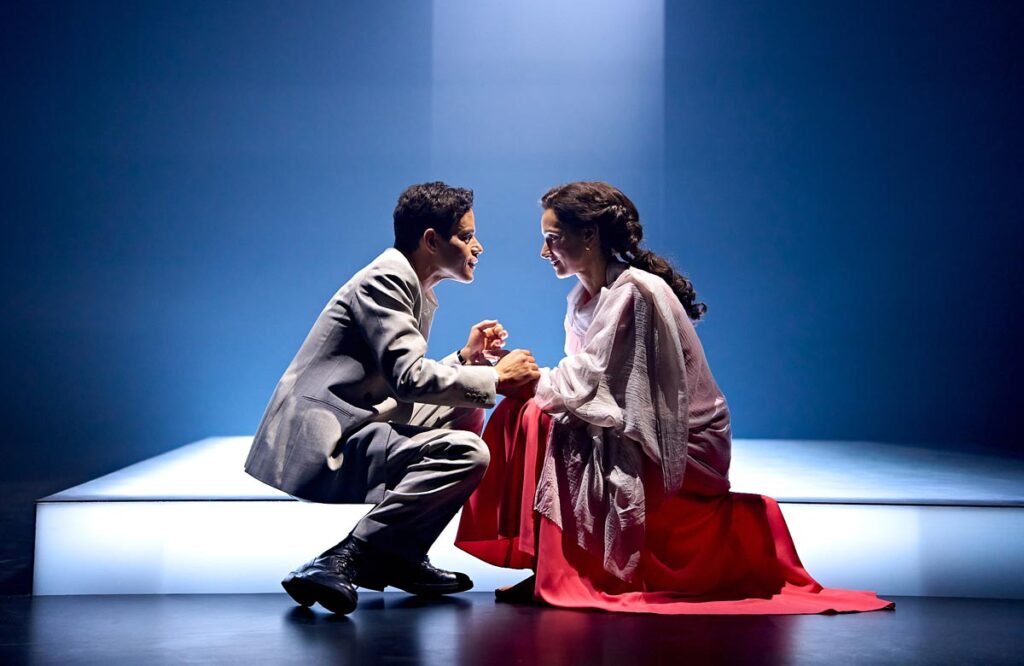Imrie & Greig convince in fractious mother-daughter relationship
Donmar Warehouse

Tamsin Greig is a menopausal daughter who remembers and reassesses her relationship with her dying mother played by Celia Imrie. Their acting received universal praise from the critics although the play elicited mixed opinions. There was general agreement that it was too long but some found Anna Mackmin’s debut play, which she also directed, ‘emotional’ and ‘involving’, others thought it ‘unbelievable’ and ‘perfunctory’.
[Links to full reviews are included but a number are behind paywalls and therefore may not be accessible]
Helen Hawkins at TheArtsDesk (4★) called it ‘extraordinary because it puts the audience inside the maelstrom of these characters’ lives, forcing us to focus on how we interpret them and how our lives might resemble theirs.’ She declared ‘Imrie and Greig are superb in all the different manifestations of these two women’.
Clive Davis in The Times (4★) described Celia Imrie and Tamsin Greig as ‘mesmerising’. He said ‘Mackmin, who also directs, alternates moments of pathos and flashes of gallows humour.’
Michael Sidhu for Radio Times (4★) said, ‘Make no mistake, this is an emotional and intimate play. There is a tenderness in the way Greig and Imrie play against one another. There are moments where it is uncomfortable to watch. It’s a cathartic experience that stays with you long after you leave the theatre behind.’
The Stage’s Sam Marlowe (3★) said, ‘There are some beautiful passages of writing, both terrifying and tender, and exquisite acting in Mackmin’s production’. ‘there’s also a huge amount of laughter here’ ‘The narrative can ultimately lead only in one direction, and its inevitability leaves you craving more. But this is a heartfelt, unsentimental portrayal of the slippery cord of maternal connection.’
Holly O’Mahony at LondonTheatre (3★) felt ‘the play feels generally repetitive, with too many scenes exploring the same dynamic, even if Imrie and Greig are always gripping to watch.’
’Celia Imrie as the mother and Tamsin Greig as daughter give immense performances’ said Arifa Akbar in The Guardian (3★). She had mixed feelings about the writing, calling it ‘an unruly and frustrating play but also original and moving, which captures sometimes searing pieces of mother-and-daughterhood’
Dominic Cavendish in the Telegraph (3★) asserted ‘the production confirms Greig as one of our finest actresses – her deadpan features a surface beneath which churns so much; she can convey incredulity with a raised eyebrow, exhaustion with a sustained blink.’
Sarah Crompton of WhatsOnStage (2★) felt ‘the director doesn’t tell Mackmin the writer when enough is enough. Everything is given equal honour and nothing ever reaches clear water. A disappointment.’
The Standard’s Nick Curtis (2★) went further: ‘the opposite of a good night out’. He explained, ‘the story’s humour and pathos feel synthetic and unearned, the depiction of the issues surrounding end-of-life care glib and perfunctory.’
Tim Bano writing for Time Out (no rating) concluded ‘these two characters – partly hard to like, partly hard to believe – mean that by the irritatingly platitudinous ending, we’ve long had enough.’
Critics’ average rating 3.1★
Backstroke can be seen at Donmar Warehouse, London, until 12 April 2025. Buy tickets direct from donmarwarehouse.com
Read Paul’s 4 star review here
Watch Paul’s review on YouTube
If you’ve seen Backstroke at the Donmar, please add your review and rating below








